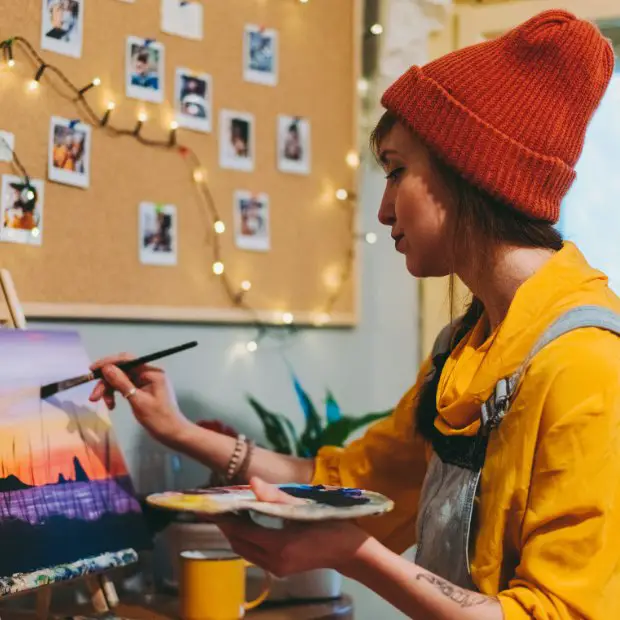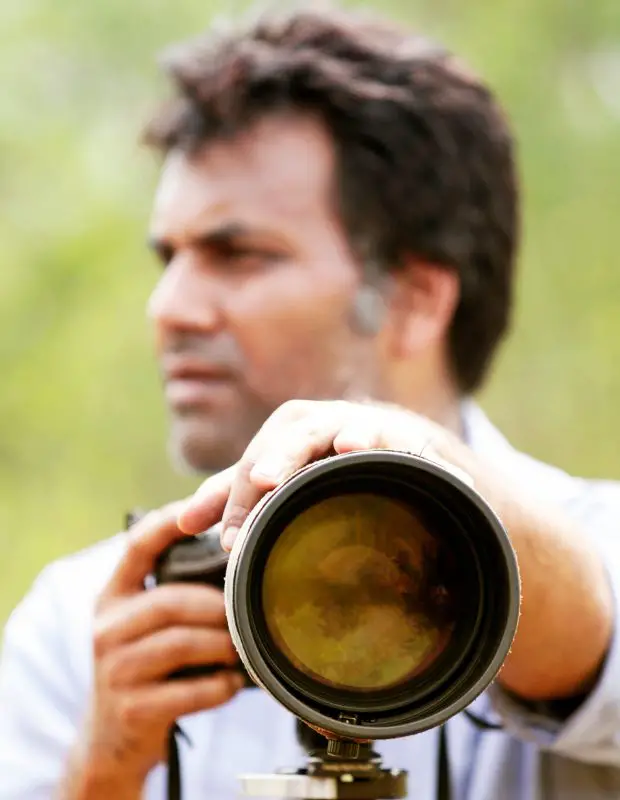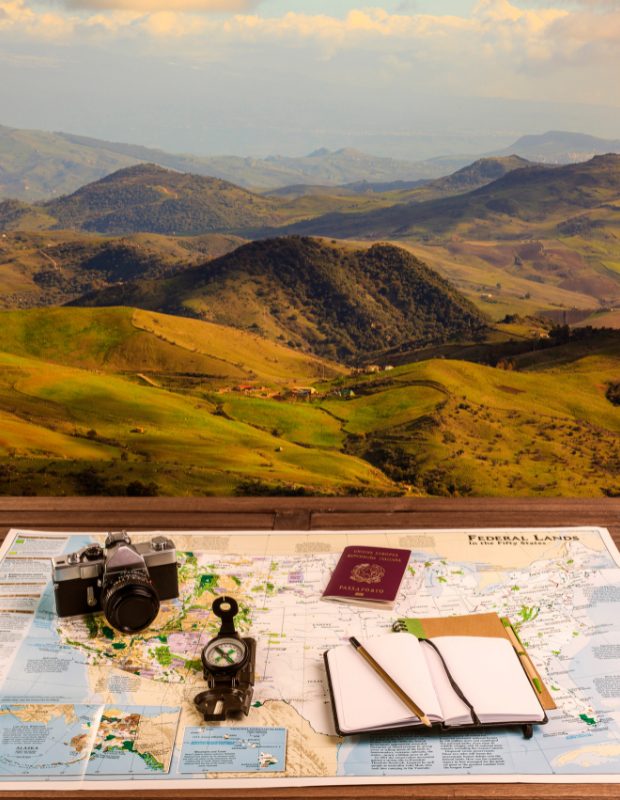
The engine that drives writers’ creativity is an inspiration. Many renowned novelists offer great creativity tips to young writers.
Still, there are times when writers become uninspired and go through a creative dry spell. Look into unique and diverse pastimes to reignite your enthusiasm and breathe new life into your writing. These seven creative hobbies will serve as unexpected sources of inspiration, helping you get past writer’s block and inject fresh ideas into your work.
“Create. Not for the money. Not for the fame. Not for the recognition. But for the pure joy of creating something and sharing it.” ― Ernest Barbaric
Here are the top creative hobbies that will inspire you to write more:
1. Sketching and Drawing: Illustrating Imagination
Visual arts such as sketching and drawing can be a writer’s greatest ally. Even if you’re not a skilled artist, doodling or quickly sketching scenes can help you visualize characters, settings, and significant moments in your writing. Draw character profiles, map out the locations in your made-up world, and create visual storyboards for your story. Graphically depicting your concepts can highlight previously missed details in your narrative. Free up more time for your hobbies by hiring professional writers to help with your academic assignments. You should buy online assignment only from reliable writing services. Make sure you pick one with a proven track record in academic writing.
Bring Your Words to Life:
Today, take a moment to sketch one of your characters or a pivotal scene from your story. Allow your sketches to be rough and spontaneous. This process can unlock new insights into your narrative and might just reveal new story angles you hadn’t considered.
2. Photography: Capturing Moments in Words and Images
Writing and photography work particularly well together. Gazing through a camera sharpens your observational sense of detail about the outside world. Capturing emotions in a photograph and framing a shot are skills that translate easily into writing vivid descriptions. When you first start taking photos, the subtleties of people’s expressions will inspire you, the way light and shadow play together, and the unspoken stories that each image holds. Utilize your snapshots as inspiration for your writing.
Develop Your Narrative Eye:
Grab your camera or smartphone and set out to capture ten intriguing photos—anything from the mundane to the magnificent. For each image, craft a one-sentence story. This practice sharpens your ability to notice and articulate the intricate details that bring a story to life.

Becoming a keen observer of the world will let you spot nuances that will make all the difference in your writing.
3. Cooking: A Culinary Journey of Flavors and Narratives
In addition to preparing meals, cooking is a sensory experience that involves taste, smell, and touch. Writing unexpected turns to your stories and stimulating your creative thinking can come from experimenting with flavors and ingredients. Create fictional universes centered around exotic foods, endow characters with unique culinary skills, or use the act of cooking as a creative process metaphor. Writing with a culinary theme can transport readers to a world where the words taste as good as the food they describe.
Flavor Your Fiction:
Experiment with a new recipe or culinary technique. As you engage with the process, take note of the sensory experiences and imagine how they could translate into your storytelling. Perhaps the blend of spices can describe a character’s complexity or the layers of a cake could symbolize the unfolding of your plot.
4. Dance: Movement as a Metaphor for Expression
Dancing is an expressive art form that transcends all language barriers. Dance’s rhythmic steps, emotional expression, and fluidity of movement can all be powerful metaphors in writing. Explore the world of dance by attending events or learning a new technique. If you can capture the passion and intensity of dance, your scenes and characters will come to life. Describe the grace of a hip-hop dancer’s sway or a pirouette to convey emotions that words might not adequately convey.
Choreograph Your Characters:
Watch a dance performance—live or online—and observe the emotional storytelling through movement. Afterward, write a scene where actions speak louder than words, letting your characters’ movements reveal their innermost feelings.
5. Gardening: Cultivating Ideas and Characters
Developing creative ideas is akin to tending to a garden. Taking care of a garden provides a quiet, reflective space to reflect on your writing pursuits. Draw parallels between the growth of your story arcs or characters and the process of planting seeds and watching them sprout. Descriptive language can be inspired by the colors, scents, and textures of flowers, and the cycle of growth and decay in a garden can mirror the ebb and flow of your story.
Plant Seeds of Story:
Spend some time with plants, either in your garden or a community space. Reflect on how nurturing a plant is similar to developing a storyline or a character. Use these thoughts to cultivate a plot point or grow a character’s arc in your writing.

Gardening will make you live longer and enjoy your life, but nature is also a great source of inspiration for creative pursuits.
6. Music: Harmonizing Words and Melodies
Music has the power to evoke emotions and transport listeners to new locations. Explore the emotional landscapes evoked by a variety of musical genres as a writer by getting lost in them. Write scenes that are inspired by the mood of a song, explore the past of a fictional musician, or use the structure of a symphony to determine how quickly your story progresses. Alternatively, think about creating some instrumentals or lyrics to go along with your writing. Adding music and lyrics to your storytelling can enhance it and provide your audience with a multi-sensory experience.
Compose Your Prose:
Create a soundtrack that reflects the tone of your work in progress. Let the music guide your writing session, and see how the rhythms and moods of the music translate into the rhythm and mood of your prose.
7. Traveling: Exploring New Horizons
Traveling affords access to a diverse array of experiences, landscapes, and cultures, regardless of the destination. It exposes you to narratives and points of view that can elevate your writing. To broaden your artistic perspectives, engage with individuals from varied backgrounds, sample novel cuisine, and gain knowledge about regional customs. Write travel blogs that incorporate the sights and sounds of the places you visit. Alternatively, use travel as a metaphor to symbolize your characters’ journeys, both inward and outward.
Journey Beyond the Page:
Embark on a real or virtual trip to a place you’ve never been. Take detailed notes about everything you see, hear, taste, and feel. Use these vivid details to add authenticity and depth to the settings and cultures in your writing.

Can you feel that yearning for adventure? Let travels inspire you!
8. Board Gaming: Strategy and Storytelling
Invite friends for a board game night and choose games that involve storytelling or character development. Pay attention to the game mechanics and the narratives that unfold. After the game, write a short piece inspired by the strategies you employed or the characters you encountered. This can translate into more dynamic writing, as you think about character motivations and plot developments in your stories.
Unleash Creativity on the Board:
Organize a board game session focused on storytelling or role-playing games. As you play, take note of the characters’ backgrounds, the unfolding plot, and the strategic decisions that change the course of the game. Afterward, reflect on the experience and jot down any story ideas, character quirks, or themes that emerged. Use these notes to add depth and intrigue to your writing, or to break through any creative blocks with fresh, playful insights.
Final Thoughts
Don’t restrict your search for writing inspiration to traditional methods. Engaging in diverse artistic and creative pursuits can reinvigorate your work by incorporating novel perspectives and unexpected nuance. Whether viewed through the lens of a camera, the rhythm of dancing, or the flavors of a well-prepared dish, these hobbies offer a wealth of inspiration that is just waiting to be found. Take advantage of the opportunity to explore and create, and let your newly found passions inspire your writing. Next up, you may want to explore a guide book publishers for first time authors.
Hey there, welcome to my blog! I'm a full-time entrepreneur building two companies, a digital marketer, and a content creator with 10+ years of experience. I started RafalReyzer.com to provide you with great tools and strategies you can use to become a proficient digital marketer and achieve freedom through online creativity. My site is a one-stop shop for digital marketers, and content enthusiasts who want to be independent, earn more money, and create beautiful things. Explore my journey here, and don't forget to get in touch if you need help with digital marketing.

